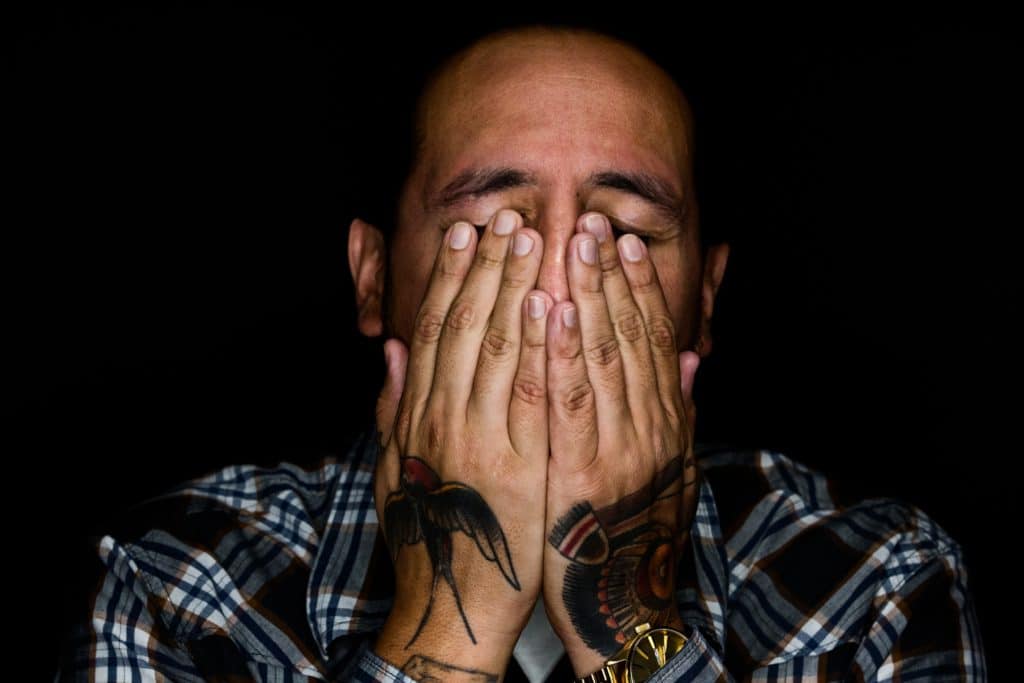Stress making it hard for you to sleep at night? If so, you’re not alone! We surveyed 2,500 adult sleepers across the United States to figure out how much sleep folks are losing to stress each year. Turns out, it’s quite a lot, and we’ve got it all covered in our interactive infographic below.
Hover over your state to find out how much sleep debt your peers are accruing in the face of life’s everyday stresses!
Note: The information on Sleepopolis is meant to be informative in nature and should never take the place of medical advice. Please consult a healthcare professional immediately if you feel as though your sleep is seriously suffering from stress-related causes.
Stress By Any Other Name
Simply defined, stress is the body’s physical response to any demand. (1) It can be expressed in everything from the tightening of shoulders when working on a deadline to the thumping of the heart when saying I love you to someone for the first time. Most of us are familiar with this kind of stress and understand the impact it can have on our lives (i.e. loss of sleep, pain, and intense worry).
However, stress can also come in smaller doses that are way more fleeting, but equally as troublesome. You know that feeling you get when you’ve left home and can’t remember if you turned off the stove? Or the sense of dread that comes with realizing you forgot to wish your mom Happy Birthday? These are called micro-stresses and can be just as stressful as, um… stress if they go unchecked.
In fact, as these microscopic worries pile up, they can take quite the toll on one facet of well-being in particular: Sleep. (2) Curious to learn more about how micro-stress can negatively impact our slumber? Check out the full analysis of our survey + infographic below!
Digging Into the Results
While we anticipated that most of our participants would report losing some sleep to stress, we were struck by the extremity of their responses. Nearly 60% of those surveyed reported regularly experiencing interrupted sleep due to “minor” stresses, 45% of which were related in some way to work. Perhaps that’s why an astounding 58% of respondents said they struggled to “switch off” once they got home.
No matter the worry (whether it be losing an important document, stressing about a phone battery dying, or wondering if you’re appreciated enough at your job), it’s clear that micro-stress is posing a big problem for our collective sleep hygiene and, therefore, our lives. One longitudinal study from 2017, for example, found that those individuals who regularly lost sleep to perceived work-related stresses were far more likely to suffer cognitive impairments (memory loss, concentration issues) than their stress-free peers. (3)
The question then becomes: What can we do about it?

Finding a Solution
First and foremost, it’s important to take a long hard look at your bedtime routine. Is it consistent? Is it restorative? Does it get you the sleep you need? If your answer is no to any of those questions, it may be time to revamp how you unwind at the end of the day. Studies have shown that stress actively disrupts the body’s natural circadian rhythms, so it could be necessary for you to re-calibrate your internal clock with a little more intention than simply popping a sleeping pill or hoping the problem goes away. (4)
Start by figuring out the ideal time to go to bed and wake up to optimize your slumber (our sleep calculator can help!). Next, zone in on a pre-snooze activity that’ll calm you down. Maybe you move through some relaxing yoga poses, practice guided meditation, or write down your most pressing thoughts. Whatever it is, use this space as a time to clear your head. And finally, take stock of your bedding and consider investing in a mattress that could better support your specific sleep needs.
Once you’ve figured out a routine that works for you, stick with it! Consistency is key and will help train your body to ditch the stress and embrace the healing power of sleep.
References
-
“What Is Stress? Symptoms, Signs & More.” Cleveland Clinic, my.clevelandclinic.org/health/articles/11874-stress.
- Brick, Cameron. “Association between Sleep Hygiene and Sleep Quality in Medical Students.” 2017, doi:10.31234/osf.io/8nczx.
-
Eskildsen, Anita, et al. “Perceived Stress, Disturbed Sleep, and Cognitive Impairments in Patients with Work-Related Stress Complaints: a Longitudinal Study.” Stress, vol. 20, no. 4, 2017, pp. 371–378., doi:10.1080/10253890.2017.1341484.
-
Mcewen, Bruce S. “Sleep Deprivation as a Neurobiologic and Physiologic Stressor: Allostasis and Allostatic Load.” Metabolism, vol. 55, 2006, doi:10.1016/j.metabol.2006.07.008.


























